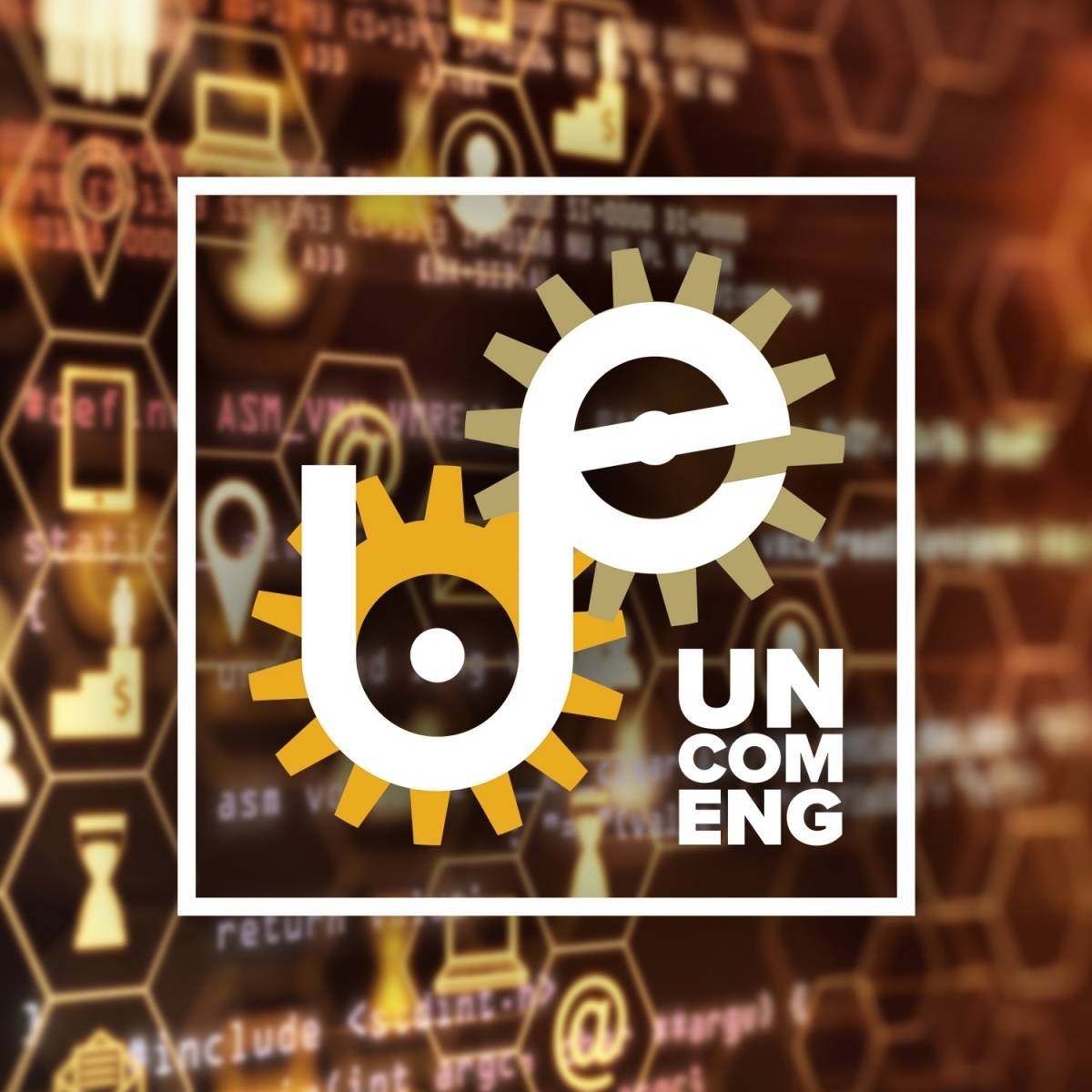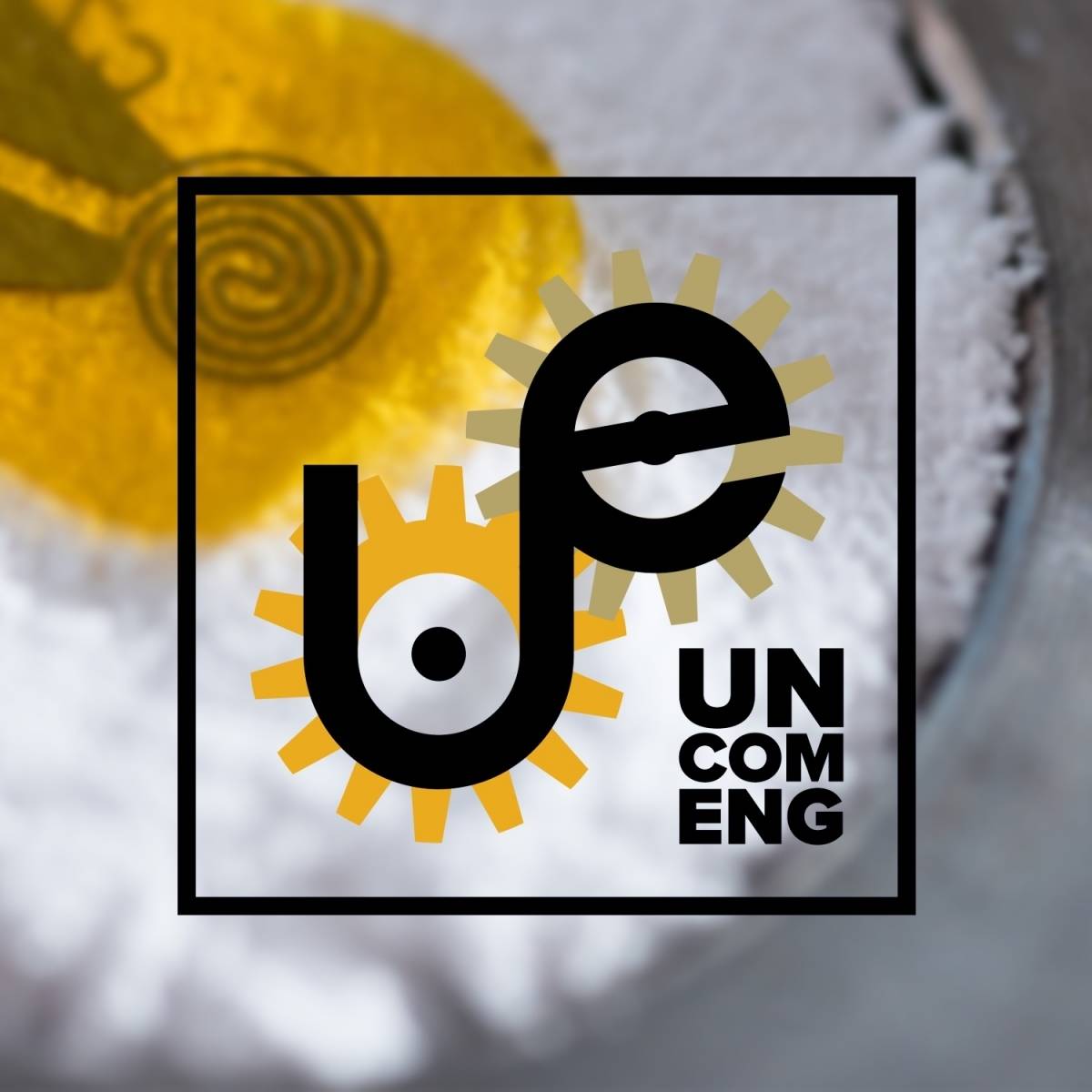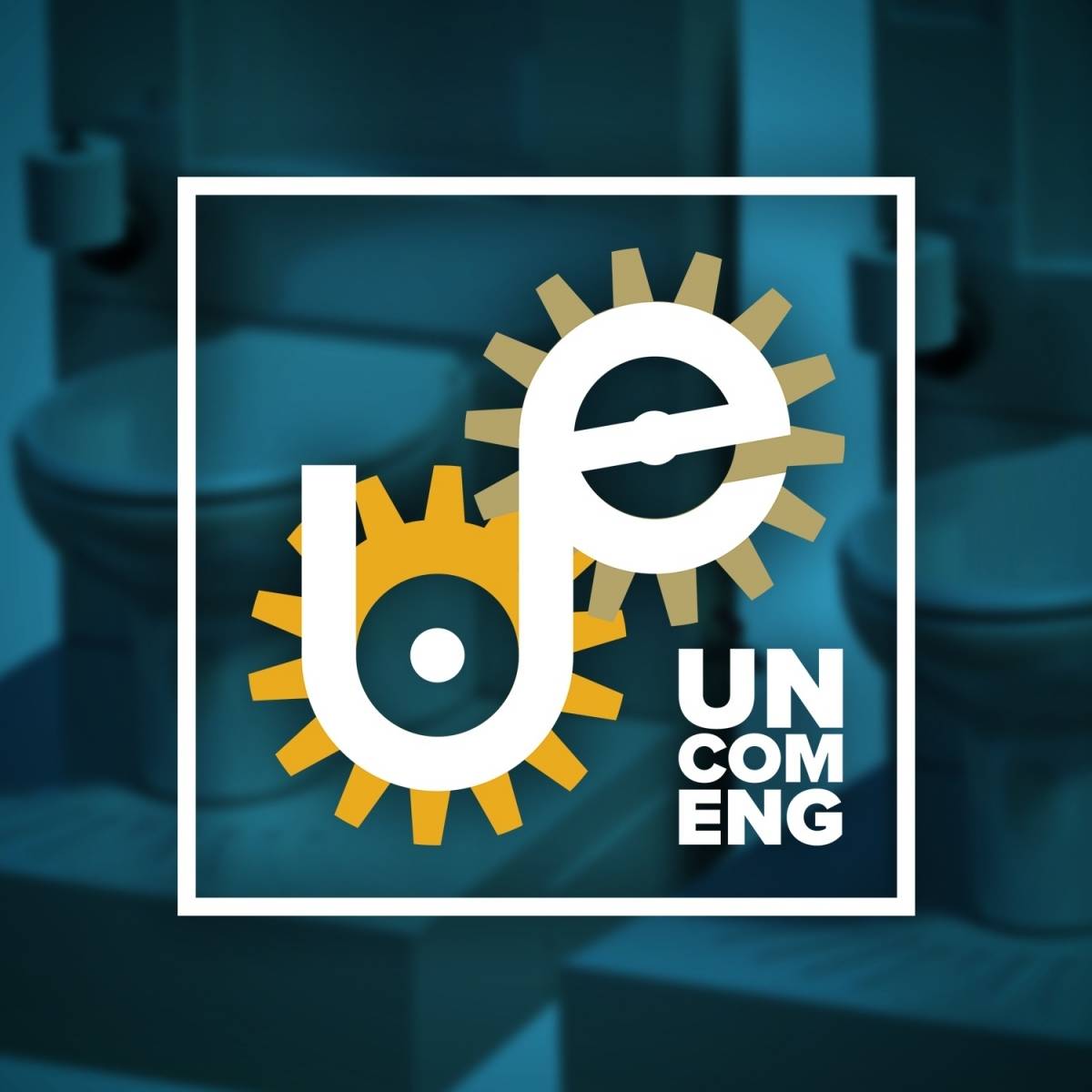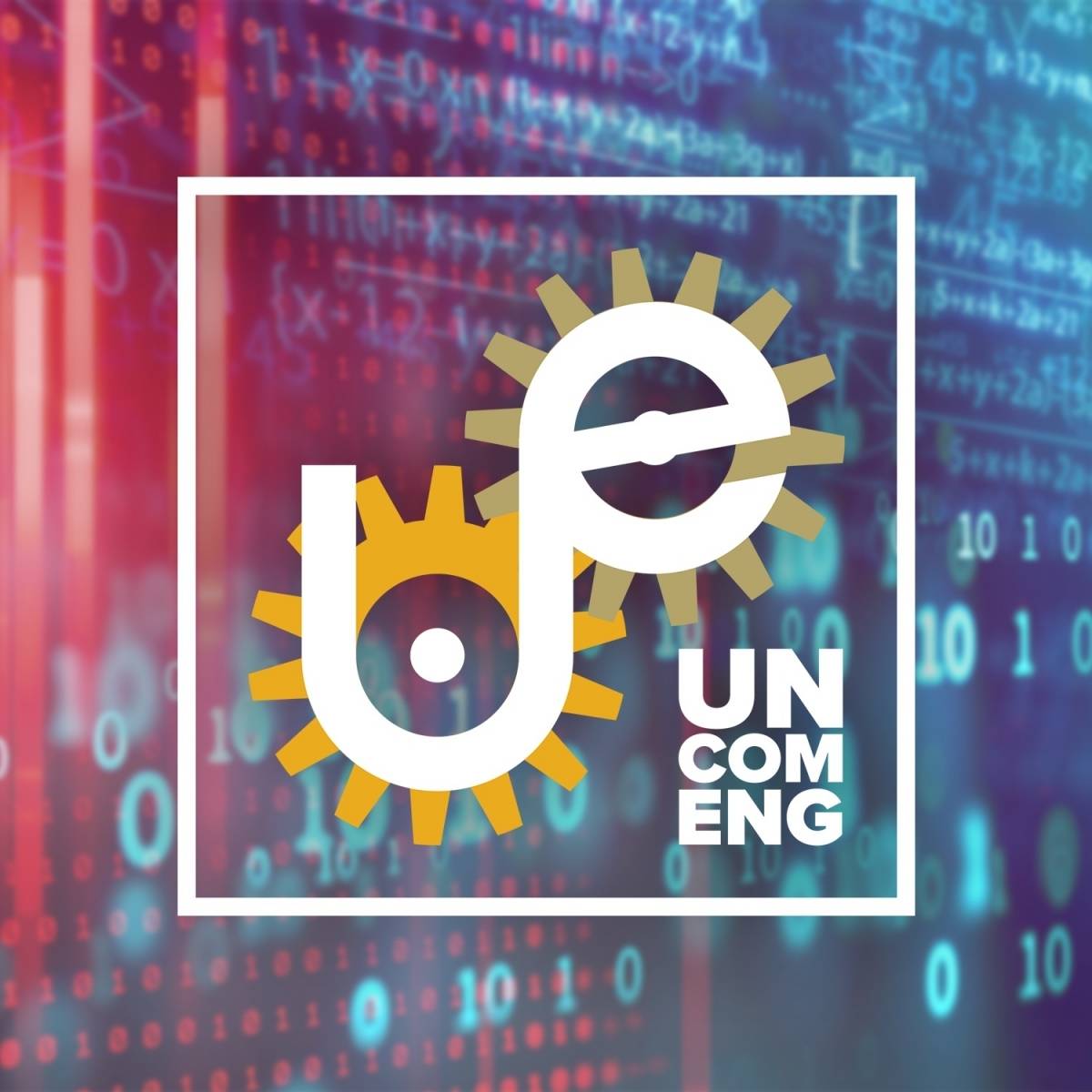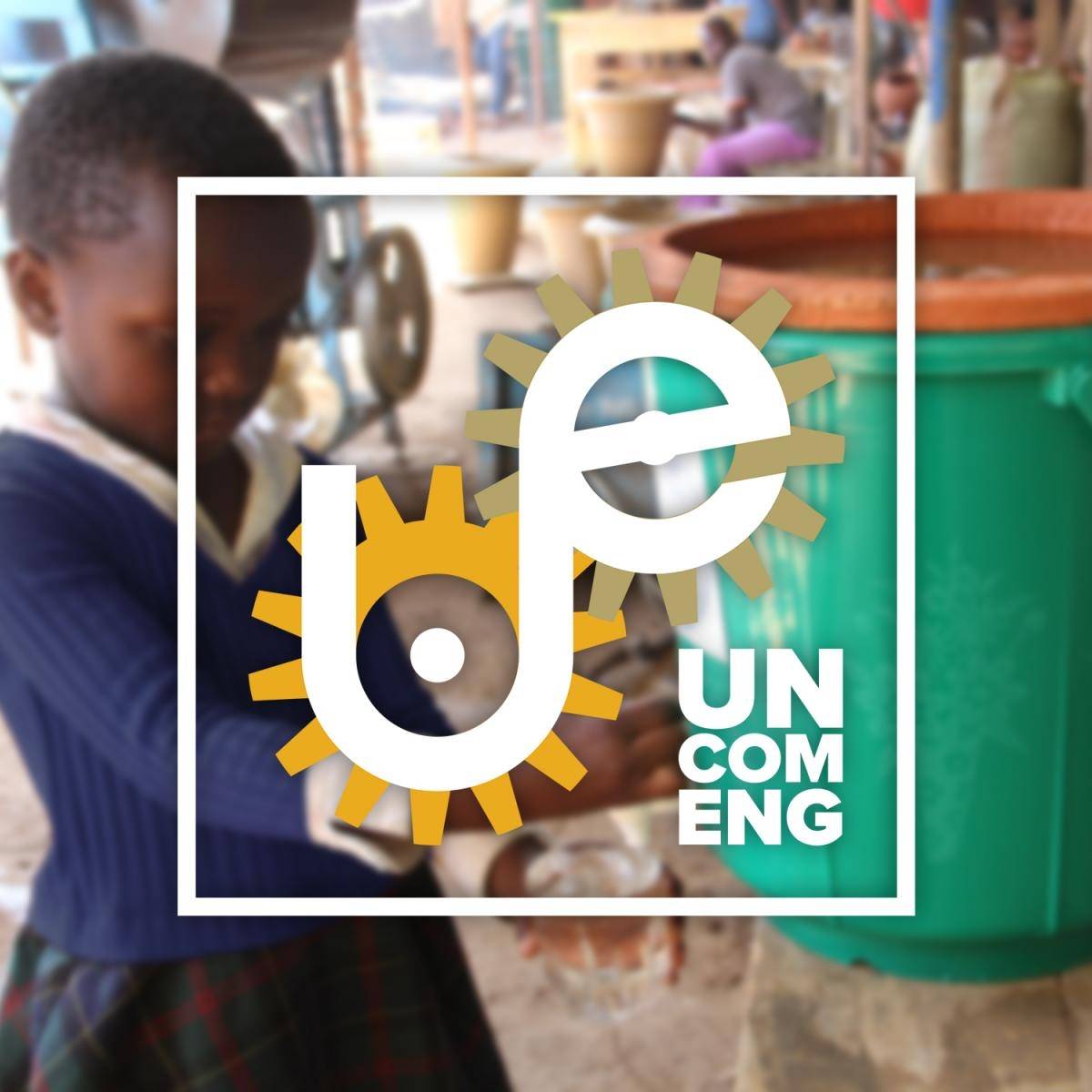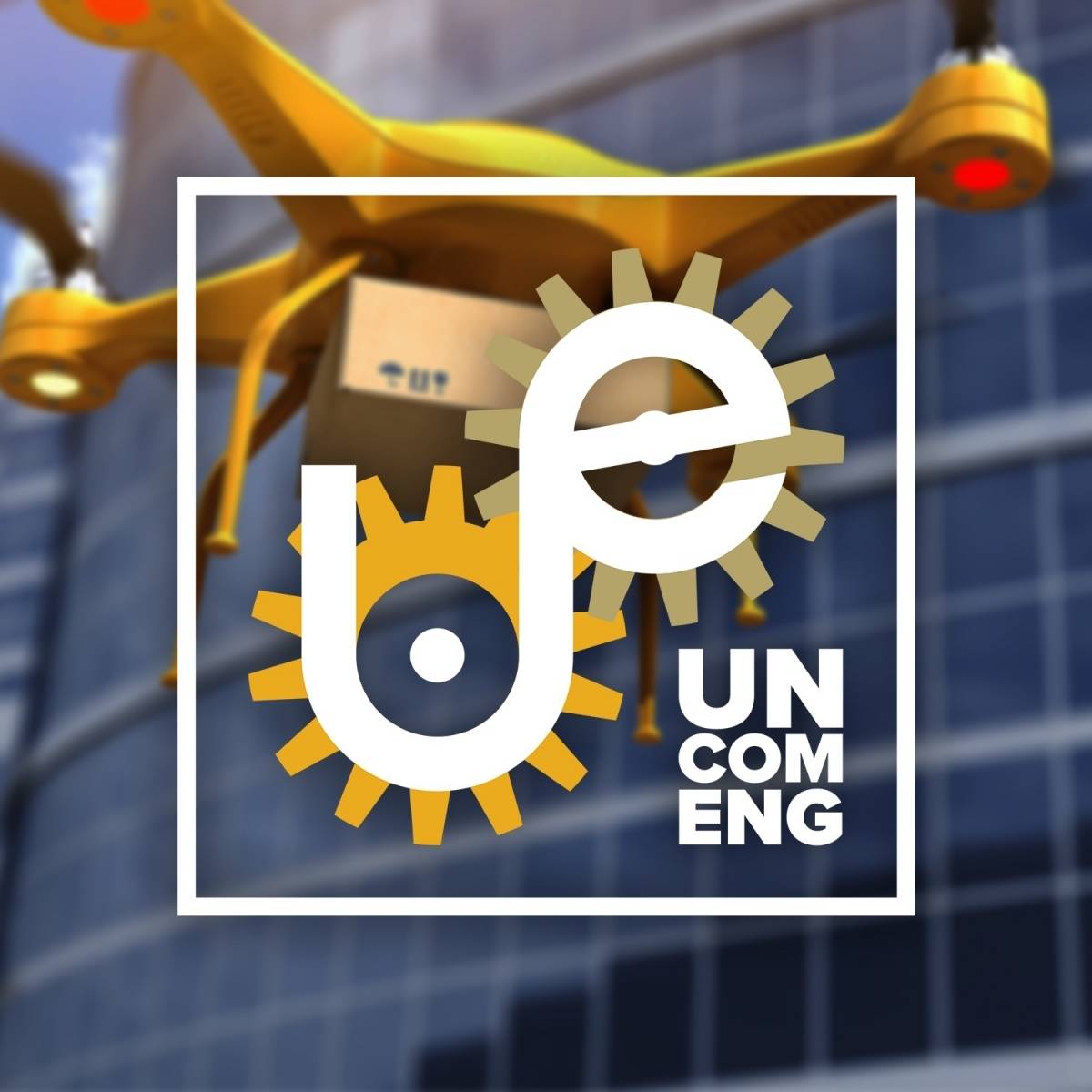Steve W. McLaughlin
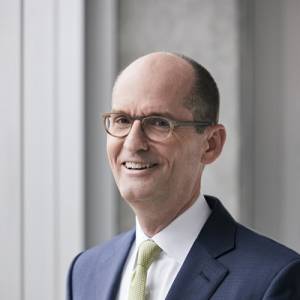
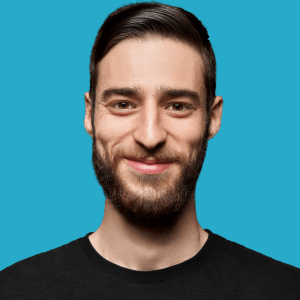
Audio
Audio & Captions
Transcript
Steve McLaughlin: AI, machine learning, big data— it's everywhere. So how do we monetize it? And how is it helping big businesses become even bigger? Welcome to Part Three of our AI series, The Commercialization of AI.
[steam whistle]
[applause]
[marching band music]
I'm Steve McLaughlin, dean of the Georgia Tech College of Engineering, and this is The Uncommon Engineer.
[music]
Man: [archival recording] We’re just absolutely pleased as punch to have you with us. Please say a few words.
[applause]
Steve McLaughlin: Today, our guest is Seth Radman, a Georgia Tech grad who has started and grown multiple successful startups, a number of which leverage AI. Welcome to the program, Seth.
Seth Radman: Thanks. I'm glad to be here.
Steve: You know, we're going to talk about a whole bunch of different things today about your use of AI in apps, your involvement in our startup program here at Georgia Tech, but why don't we just get started about the commercialization of AI because we hear it's everywhere— AI, big data, big things are coming. What's your perspective, you know, kind of your definition of AI, and where do you think it's headed in terms of commercialization?
Seth: Yeah, I'm glad you mentioned that. It seems like AI is this buzzword that, at least in the startup world, we like to use all the time that if it's a music trainer, then you put AI in front of it, an AI-powered music trainer. I may or may not have done that initially with Crescendo. But I think the big thing that I'm seeing for AI is just greater accessibility. You know, you take me— my background is in mechanical engineering, right? I'm not an expert in AI at all, but there's so many available tools and resources online nowadays that make it easy to use. So, for example, in Crescendo, my music startup, which I'll touch on a little bit more later, we use a library that Apple provides called Core ML, which is core machine learning. And this enables us to have supervised learning and training directly on the device. And the way we use that, is to understand if a user is playing the right note on their instrument when we're trying to help them improve. So I think this greater accessibility, we have more libraries that are available that you can just download a Python library, plug it in, give it some training data and you're off to the races right away. But Siri is a really great example. It's in the same bucket of Alexas and Echoes that on one side really excite me about the power of AI to provide more convenience to people, but on another side, terrify me because of privacy. So take your Alexa, for example. You might have heard that it’s always listening. That's not untrue, I'll say. It is often listening, especially at times that you might not expect it to be, not because it wants to eavesdrop on your conversations necessarily, but because by getting more samples from your voice, it can more clearly distinguish commands that you give it, so it actually improves the algorithm. And that type of training is something that's typically not done on the device. So that's something that's done on a server. So that as you give more data, it passes that data up to a server and then on a data center in Texas or wherever— not your phone or your Alexa— that's where the analysis is being done. That way, it doesn't slow down your device. But another advantage that it has is it can compare your data with other users’ data to form even bigger data sets. So you'll see this continual pattern that with AI, it is very accessible in terms of the technology to actually do it, but the big factor that hasn't changed is the quality of your data sample. If you don't have a lot of data and good data that's been cleansed, your algorithm is really not going to be effective. So that is one big advantage that the Googles, the Apples, the Facebooks of the world have over a lot of other companies. They have all the data in the world to do whatever they need. And now, Alexa getting all the information with Siri getting all that data, even some phone calls that Apple probably records, again, not to eavesdrop, but to get data samples from you are used to improve your experience, but we're in this area where that's definitely a direct tradeoff with privacy as a consumer, as we all know.
Steve: You know, as you were describing all that, I think I kind of had a big smile on my face because hearing you talk about how individual users can develop apps on phones making use of this extraordinary power doesn't mean it's just going to be Amazon and Google—
Seth: Right.
Steve: —you know, and Microsoft that have the power in their hands of developing tools that use AI. It can come from just an individual person who begins to learn how to use it on their smartphone. Do you see that exploding in the way that I do in terms of how much it's going to empower individuals to make use of this on their own by themselves to develop an app to do even more things?
Seth: Absolutely. I think in the sense that when the iPhone first came out, learning to build a mobile app was considered a pretty specialized skill and now it's fairly ubiquitous. If you have an app idea and some money or you know people nearby, it's not that hard to find someone to build an app for you. I think we're very close. I wouldn't be surprised if in a year or two that same kind of ubiquity that we see around mobile app development exists for data science, artificial intelligence, machine learning. And you're right— the technology is there that makes it so accessible. And these bigger companies are starting to be more and more innovative by forming partnerships with smaller teams to help with this. So, for example, with Crescendo, we went through Google for Startups where they gave us some data form that they have from audio data that enabled us to improve our algorithm and get more clarity on different types of commands. We'd work with them on a system that would be allowed to essentially be a completely wireless system, wherein a future version that we had thought of was, hey, I'm in my room. I have my music stand with my music on it, and I'm going to say, “Hey, Google, can you listen while I play and let me know how I do?”
And you'd have a camera somewhere, right? You’d be able to play your music. It would listen. It would be like, “Hey, great job, Steve. You rushed the chord notes at the beginning, but your tempo is perfect and your pitch quality is fantastic. Let's try one more time.” And this kind of virtual private instructor was a really neat concept that they really liked.
So, yeah, I definitely see this being something that excites me a lot because I'm not an expert in AI or machine learning, but thanks to libraries out there, I've been able to still use the technology to build some really cool stuff to help people.
Steve: So you mentioned Crescendo, and I think one of the ways you got started with Crescendo was through our program Create-X—
Seth: Yeah, absolutely.
Steve: —our program to instill entrepreneurial confidence in our students and help them do startups. And so I don't want to totally get off the AI topic, but it would be good to kind of hear a little bit about your experience, like how you got started on Crescendo, your experience through Create-X and let's not forget about AI, too.
Seth: Yeah, absolutely. I'm glad you mentioned that because I'm a huge fan of Create-X. So I went through the program and loved it so much that I actually came back as a coach now. So now I get to give back and coach some of the startups going through the program. So how I got started, really, I've been a musician since I started playing saxophone in fourth grade, and I've just put in the time and effort and I— it's definitely a skill that anyone can learn. But I noticed that not a lot of people thought that. A lot of people thought, oh, they'd say, you're so talented or oh, you're such a natural, but what they didn't see were the hours and hours and hours of practice I'd be putting in behind the scenes that you'd never see before you're on the stage. And that really frustrated me because I thought a lot of people who had ambitions to play a musical instrument were giving up just because they thought they didn't have the music gene. There's ample research and data and studies that show there's not been a single musician in the history of existence who has not put in hundreds, if not thousands of hours to become great. There's this stigma of this fixed mindset around learning music, and I found that a lot of my friends in middle school and high school were quitting because they thought they didn't have that talent, and they were giving up. And I didn't really think much of it at the time. It wasn't till I got to college that I realized that it was fixed mindset versus growth mindset knowing that, you know, learning to play a musical instrument is a skill anyone can learn. And I thought, hey, if I make maybe learning more fun or maybe add some gamification to it, that it could become this data-driven process that you can physically see the progress you make.
Anyways, flash forward to Georgia Tech. All my friends are musicians. I was in the Georgia Tech marching band for four years. I did drum corps. I played probably, you know, five or six instruments. And I realized that music in the classroom, especially from the technology perspective, really hasn't changed much since I was in middle school. In fact, the leading product in the market is the exact same one that I used when I was in middle school that I didn't like. And I remember not liking it a lot. So I'd build this metronome app when Apple Watch first came out. It was a haptic metronome. I just built it for fun. It was actually, I think, the fifth Apple Watch app on the app store, so I got lucky that it happened to be featured pretty soon and got a little popular that it would tap you on the wrist so you could feel the tempo, but it didn't make any sound. And it was just a fun passion project, and it was exciting.
And when we went into Create-X, that actually wasn't the idea we went with. We didn't start with Crescendo. We started with a completely different idea and really struggled to get users and eventually determined that we weren't building a product people cared about which, it’s a harsh reality, but I think it's one of the most important first steps to take to figure out are you building something people care about. We figured out we weren't. But the coaches turned to us, hey, you said you have this other thing that has like 30,000 people on it because our Metronome app had grown just organically. So we kind of turn toward that and tried to find a revenue model for it. It didn't quite succeed, but we realized there is a different opportunity that that product I had used in middle school was only available for desktop as an app, not even a web app. You just you have to download it. It still had a CD. I mean, how many laptops, you know that have a CD drive now? You have to get a USB extender for that.
Anyways, so we saw an opportunity there, and that kind of formed the birth of Crescendo which became this interactive music trainer on your phone that feels like Guitar Hero, but for real instruments. And we went through the Create-X program, which was huge for us. It provided us with great accountability and mentors who had actually done startups. We got some Ph.D.s in the music technology program here to help us out to do the hard, crazy stuff that I still don't know exactly how it works [chuckles] but I went through the Create-X program and had a fantastic time. And I constantly recommend that people are at least checking out the program because I, at first, I thought I didn't need it. I thought trying to get help or mentorship was like a weakness and admitting that I needed help. But it turned out to be the best decision I made. And I promise knowing from no one from Create-X is telling me to say this. I genuinely believe this, and that's why I came back as a coach to try to help other people have that same experience that I had.
Steve: And so you graduated when? And what have you done since then? And where is Crescendo?
Seth: Yeah. So I graduated in spring, 2017, so not too long ago. Since then, I've pretty much just been working on Crescendo, growing it and trying to get more partnerships and marketing deals. And actually have some cool news to share that recently Crescendo was actually acquired by Ultimate Guitar.
Steve: Awesome. That's fantastic.
Seth: Yeah, I appreciate it. It really was incredible journey. So I'm now part of Ultimate Guitar team, and I'm working with their product strategy team to essentially integrate our music analysis engine, our technology, into all of their product lines where they have over 300 million people across the world who use their product every day. So it really brings me a lot of happiness that I get to make an impact to a ton of people all over the world, and I'm really thrilled to be joining the Ultimate Guitar team to kind of bring the vision that originally had for Crescendo to life on a larger scale. And I have I have to give credit to my other co-founder who is not here, Steven Schwann. He also was Georgia Tech graduate in CS. We actually met in the marching band. We were in the mellophone section together. Without him, none of that would have happened. So I really leaned on other people who had an incredible skill set. It's really exciting. And, you know, I'm excited to see where things go further with the Ultimate Guitar.
Steve: So as you were talking about the power of the tools that are developing, you know, where you don't even need to be a coder to develop an app, my brain went to, oh my gosh, you just eliminated four or five jobs. What's going to happen to all those coders? And I think that's just this broader question about advanced technology and how it, you know, has this potential downside to eliminate jobs. What's your reaction to that?
Seth: Yeah, it's a great question. And honestly, it's a big concern. It’s something that we thought about really heavily at Crescendo, because a lot of the initial pushback we got was from private instructors and band directors saying, “Hey, is this replacing me?”
And originally, our truthful response was, “Oh, shoot. I don't know. I don't want to do that, but I want to help musicians.”
What we ended up finding was that there are definitely certain limitations with AI, still. For example, stuff that's on the emotional spectrum is really tough, and unsupervised learning is still this big kind of gray area that has not been fully democratized for everyone to be able to use clearly. So what we ran into with Crescendo that we finally converged on to was that we started focusing more on the kind of boring itty-gritty stuff like were you playing the right note at a right time, where our technology can do that, and then letting the instructor focus more on the emotion and expressional side of music that is harder for our software to do. Like if you're playing with, you know, a happy tone or a dark tone or mysterious tone, that's really hard for us to determine because we'd have to have samples and everyone would have to agree what a “dark” tone sounds like.
So I do think it, yes, I do think it will lead to kind of the removal of some current jobs, but I think it will enable people in those roles to move into more creative roles that might be less tedious. So to be honest, that's a difficult part to predict. But I will say that I do think it's still a long time before AI is going to be writing code on its own and taking over jobs. There's just so much changing in the landscape of technology in terms of programing languages. So I do think we’ll see a shift. I don't know that it'll necessarily remove people from jobs permanently, but I think we'll see a shift into more creative content, emotional intelligence, that plays a higher role in jobs than simply creating code that is outputting a certain expression.
Steve: As you were talking, I was kind of envisioning, you know, before it eliminates— before these kinds of tools eliminates jobs, it's actually probably going to help coders be better—
Seth: Exactly.
Steve: —or help folks that don't necessarily know how to code to become more efficient and better coders first, before eliminating their jobs or something like that.
Seth: Exactly. That's a great way to think about it. It's really an enhancer. It's complimentary to people who are current developers. It's not a substitute for them.
Steve: You know, one of the things that, you know, at least in the popular press, starting to hear about is how some of these algorithms can be biased, and you'll produce unintended results that are biased towards one group or another. And I'm really curious about whether you've seen or even compensated or thought about that in the context of Crescendo or just broadly the kind of experiences you've had and the degree to which it affects how you think about using AI.
Seth: Yeah, absolutely. We definitely think about that. I mean, look at our team— we're three white men building this product. And I think any bias naturally comes from the people who are building the software that does it. So, for example, if you look at our algorithm to understand sheet music, we took pictures of chord notes that we had on music that we owned. That music came off of a printer because we are able to afford printers. So the background of the paper was a perfect white color, so the contrast in the black was very strong. Let's say that you're in a, you know, area that maybe you can't afford to have your own printer or have your own sheet music, that you've to borrow books of music from your family or friends. It could be a little grayed out in the background, maybe a little yellow tint over time. It's quite probable that if you then use that algorithm on that piece of music, it's not going to perform as well. So that's just one example that I don't think many people think about implications of things like that. For the record, we actually did go through old music books. We went through new clean music. We even went through you taking a picture of music that's displayed online, digitally. But again, what if you don't have access to a computer? I think a lot of people only think about the use cases for when they're building it.
And I think another part of biases in AI really have to do with what we as humanity agree are ethical. So I think there's kind of two areas. One is part of, at least in my opinion, just our use cases that we think about because we're the ones building it. And I think another is more of an ethical question in terms of what decisions should we as a society make to make sure that our AI is replicating in a similar foundation ethically for those decisions.
Steve: Those are big.
Seth: It is big. It’s a really big problem to solve.
Steve: That that's big stuff. And I think— and I don't want to trivialise, you know, the kinds of sheet music that different kinds of communities have access to, you know, but it's real. It’s absolutely real.
Seth: And that's just one small example. There's, I mean, think about other products like Apple who reach a much bigger audience, much more diverse crowd of people. There's a lot of really bad things that can happen when you don't try to make your technology accessible for everyone. And that naturally is inherent based on who's building it. So I think one of the root sources of this is just the lack of diversity in tech, especially in the startup world. What I'm going to venture capital firms, even mentoring startups, it’s still predominantly white men doing this, right? And that, I mean, that's one of the big sources of the issue that we're thinking about. I mean, me I'm thinking about my perspective and how I'm going to use this. And I think getting more diversity in the room is, you know, for solving AI and a lot of other things is the first step to really take a stab at this big problem?
Steve: Well, as a kid, you talked a little bit about your experience with music, but how did you get steered towards engineering? How did that happen?
Seth: Sure. Yeah, so I think it was a few things. I think the biggest thing— I still remember this very clearly— is my uncle. He's an electrical engineer. And I remember one day he brought me to his workshop and it was just like a playground there. There were these giant light bulbs, cool tools, things like that. And my parents saw that I was interested in that. So for my birthday, they got me this cool little electrical circuit set where you could snap on different things together, have resistors and capacitors and light bulbs. And it was it was a toy for me. It didn't seem like I was learning. It was really just fun. So I've really been a tinkerer for a while and have always enjoyed that. And I didn’t really know what engineering to do, so I pick mechanical because it was— I was told that would be broad; you'll figure out what you want to do. I'm still really glad I picked that major. I think it's really broad that it's provided me with a lot of background information in so many different domains, that I can catch on and learn new things very quickly, even though I may be a little bit weaker in straight up CS and theoretical computational methods.
Where I really kind of formed my pivot over there was an internship that I did. I was a stress engineer at an aircraft company, and I just got impatient with the pace that we were working at. So on the side in the evenings I was learning how to code on my own because I had an idea for an app that I wanted to build. And that eventually spiraled into me kind of getting this really big obsession with apps. And for a whole year I downloaded the app of the day every day, even if it was paid, just to see what makes apps good. To me, there's always been this really cool psychological challenge of why do we use the products we use and what makes me like this product and feel good about using it. And that's just been something that's always fascinated me.
Steve: Well, one of the things that we always ask all of our guests here on The Uncommon Engineer is what makes you an uncommon engineer?
Seth: Yeah— that's a great question— a lot of things. I think probably the biggest, which I alluded to a little bit, is probably my obsession with apps. So I've, over the past four or five years, I've designed over 50 iPhone apps. I've personally built probably about 20 or 30. And I've just gone really deep into this area because I think it's just incredible how I can build something that the App Store enables anyone in the world to download. I mean, with Crescendo, the reason we were able to grow so quickly and so big is because of the distribution that the App Store provides. And I know like, you know, in the in the dot com boom, that was the Internet. It provided you do that. And I think I got lucky with timing that I've been around with the kind of mobile app boom where distribution is just crazy.
So I think, you know, when I say “obsession,” that's probably even getting detailed enough. I'm to the point where if you show me a screenshot of any app, not only will I know which one it is, I probably know the entire color palette, the fonts they use, the typography, the pixel spacing between cards, to a point where it probably seems crazy and maybe it is, but that's just kind of the stuff that fascinates me. So if that's not uncommon, then you should contact me because we'll probably get along really well.
[laughter]
Steve: Well, I feel like we could talk forever, just the excitement in what it is you're doing, the things that you're accomplishing, both while you were at Tech and afterward. I think for me and I think for our listeners, just super, super exciting. So congratulations on everything—
Seth: Thank you.
Steve: —you’ve been doing. I can't thank you enough for everything you're doing for our current students that you are going to continue to do for our students. We're super lucky to have you here, still part of the Georgia Tech family. And let's have you come back because I would love to hear about Crescendo a year from now because I have a feeling we're going to hear even bigger things. Thanks so much, Seth. We really appreciate you coming in today.
Seth: Absolutely. I appreciate you having me. We'll see you next time.
Steve: OK.
[marching band music]
In Absentia
We found no additional GEEKOUT content for this episode.

